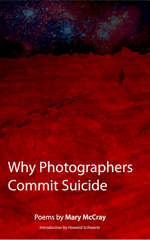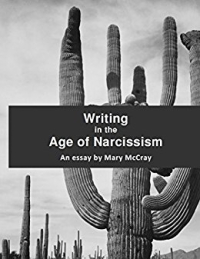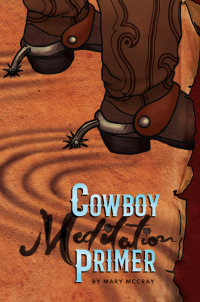 First poet who’s book I liked was Philip Levine's What Work Is. I read a small amount of assigned poetry books in college and most were over my head. But this one I understood sort of spiritually if not just making sense of it. Therefore, Levine was a big early figure in my poetic imagination about who loving poets were. He was a living, working poet.
First poet who’s book I liked was Philip Levine's What Work Is. I read a small amount of assigned poetry books in college and most were over my head. But this one I understood sort of spiritually if not just making sense of it. Therefore, Levine was a big early figure in my poetic imagination about who loving poets were. He was a living, working poet.
So when he came to Sarah Lawrence College to read in the mid-1990s and walked in the door right by me in the foyer of Sloanim House, it was like a superstar had entered the building. The only other poet I’ve had that feeling around was Joy Harjo, which was why I was more than willing to pick her up at the Albuquerque airport at midnight and drive her back to a hotel Santa Fe by the outlet mall so that none of the creative writing staff at the Institute for American Indian Art would have to do it.
As a poet from the industrial Detroit working class, Levin's subject was usually the intersection of poetry and his life with early labor work in Detroit factories. I vaguely remember choosing this essay for Suzanne Gardiner's essay class. It’s unstapled which means I might have used it to run off 35 copies (the class was popular and so crowded, students sat in chairs around the edge of the room; snagging a table seat was always unlikely). Student comments about the essay I wrote in the margins: “didn’t need an oxygen mask” (not so hard to read as some other essays in the class), “down to earth quality” (yes, that is Philip Levine) and “put poetry back in the world” which is someone’s idea about Levine’s project.
The essay was called “Entering Poetry” and it was excerpted in some anthology not noted on the printout (bad me). But eventually it became part of his book The Bread of Time: Toward and Autobiography (2001). (This is how poets in the 1990s were…they made gestures toward things. They felt too cowed by post-modernism to commit to actually doing anything.) But re-reading the essay again I was struck by how different it was than the other essays in the class. I really struggled to find essays to submit to the group and like the prior one (a journalistic screed on what was wrong with poetry today from a local newspaper), this one was very accessible, almost too accessible for the class. But in a way this essay presented another example, a more loose, more conversational and autobiographical essay about poetry that feels refreshing among the other think-pieces.
Levine talks about being a hard-luck city kid in Detroit trying to find his way, sometimes fighting through 1940's anti-Semitic bullies. He came to poetry after moving to the suburbs and finding solitude in woods behind his house. And this I found interesting because it mirrored my own experience: he discovered his love of words and his speaking voice not through reading. He sat in the trees and spoke “tiny delicious” sentences to the stars and “the smell of the wet earth would fill my head.”
This essay is frankly only an essay because it was excerpted as such in a book of essays. As part of a thing that is “towards autobiography” it’s just another chapter of human development. So not much theory here. More experience.
Levine talks about what an almost religious experience it was chewing on words. “I could almost believe someone was listening and that each of my words, frightened with feeling, truly mattered.” He then talks about wanting to learn to plant things and learning gardening words like “sandy loam” and he talks about the “earth’s curious pungency that suggested both tobacco and rust.”
Then he says
“tasting the words, I immediately liked them, and repeated them, and then more words came that also seemed familiar and right. Then I looked at the work my hands had wrought, then I said in my heart, As it happened to the gardener, so it happened to me, for we all go into one place; we are all earth and return to earth….I was sure too my words must have smelled of sandy loam and orange blossoms. That was the first night of my life I entered poetry."
As an aside (speaking of gardening), my workplace has started Slack social groups and I’ve joined many of them: cooking (just to see the pictures of food everyday mainly), gardening (people are too busy gardening to post anything there), pets (yesterday’s post was the adage "become the person your dog thinks you are" and I said my terrier thinks I’m a sucker), books (no one’s mentioned poetry yet) and music. I wondered to myself which group is going to be the first to start “shoulding” on everybody. You know, "You should eat/read/listen/adopt/garden with this." Guess who it was. Yup. The music group.
Anyway, Levine then switches gears (har!) and talks about growing up and working at Chevrolet Gar and Axel and his struggles there politically and physically and “the oceanic roar of work.” [This part of the essay has been excerpted here: https://www.randomhouse.com/knopf/authors/levine/poetsonpoetry.html.]
He says, “I have already tried at least a dozen times to capture the insane, nightmarish quality of my life a Chevy” and he says the thickness in his body affected his writing. “I carried what I did with me at all times, even when I lifted a pencil to write my poems.” Levine wanted to “say something about the importance of the awfulness I had shared in and observed."
Then he jumps to his later life as a professor in Fresno, California, and a dream he had there about a colleague back from a grease shop in Detroit, how the dream felt like a rejection of his former life and identity.
And so he started writing about it and realized when he closed his eyes he couldn’t see “the blazing color of the forges of nightmare or the torn faces of the workers….the deafening ring of metal on metal…or the sweet stink of decay.” Instead he saw a company of men and women he loved connecting with each other emotionally and physically. He imagined his former colleague with him in the “magical, rarefied world of poetry." The poem he wrote was “In a Grove Again” and then all the poems that would eventually became the book Not This Pig.
And the whole evolution of this story he is telling is just in an effort to temper “the violence I felt toward those who’d maimed and cheated me with a tenderness towards those who had touched and blessed me.”
 The next David Rivard class packet essay is called “Notes on Poetry and Philosophy” by Charles Simic which you can find in The Life of Images, Selected Prose (2015). This is the complete opposite sort of essay, all the head and none in the hands. And yet…a little magically they are both about the metaphysics of entering poetry, one poet (Levine) just explains his connection more practically. The other (Simic) uses philosophical concepts. They both also allude to “the labor” of poetry.
The next David Rivard class packet essay is called “Notes on Poetry and Philosophy” by Charles Simic which you can find in The Life of Images, Selected Prose (2015). This is the complete opposite sort of essay, all the head and none in the hands. And yet…a little magically they are both about the metaphysics of entering poetry, one poet (Levine) just explains his connection more practically. The other (Simic) uses philosophical concepts. They both also allude to “the labor” of poetry.
He starts with a story:
“Some sort of Academy of Fine Arts from which they stole the bust of the philosopher Socrates so he may accompany them on what was to be a night of serious drinking.
It was heavy. The two of them had to lug it together. They went from tavern to tavern like that. They’d make Socrates sit in his own chair. When the waiter came, they’d ask for three glasses. Socrates sat over his drink looking wise….This was my father’s story.”
Simic talks about how his father got him into philosophy and how he has always digested the ideas of philosophy through poetry, for example:
"The other appeal of Heidegger was his attack on subjectivism, his idea that it is not the poet who speaks through the poem but the work itself. This has always been my experience. The poet is at the mercy of his metaphors. Everything is at the mercy of the poet’s metaphors—even Language, who is their Lord and master.”
Later he quote, “The twentieth-century poet is ‘a metaphysician in the dark,’ according to Wallace Stevens.”
Simic structures his diminutive sections under poetic and obtuse headings, like “The Fish is Sphinx to the Cat” and “Knights of Sorrowful Countenance Sitting Late Over Dog-eared Books.”
He says, “There is a major misunderstanding in literary criticism as to how ideas get into poems. The poets, supposedly, proceed in one of these two ways: they either state their ideas directly or they find equivalents for them.”
But he loses me here: “…the writing of the poem is the search for the most effective means of gussying up the ideas. If this were correct, poetry would simply repeat what has been thought and said before. [why necessarily?] There would be no poetic thinking in the way Heidegger conceives of it. There would be no hope that poetry could have any relation to truth.” [???—those are actually my question marks from the first reading back in the 1990s.]
“My poems (in the beginning) are like a table on which one places interesting things one has found on one’s walks: a pebble, a rusty nail, a strangely shaped root, the corner of a torn photograph, etc. …where after months of looking at them and thinking about them daily, certain surprising relationships, which hint at meanings, begin to appear.”
That actually sounds like an interesting experiment to try out. “These objets trouves of poetry are, of course, bits of language. The poem is the place where one hears what the language is really saying, where the full meaning of words begins to emerge. That’s not quite right! It’s not so much what the words mean that is crucial, but rather, what they show and reveal.”
The next statement reminds me of an argument I had in Suzanne Gardiner’s essay class:
“…back to things themselves, said Husserl, and the Imagist had the same idea. An object is the irreducible itself, a convenient place to begin…”
“Not true,” I wrote in the margins. I remember how the class digressed into a side-argument about this, how I believed we compromise with our ideas of the irreducible self or thing. We say a chair is its irreducible self but it’s not at all irreducible; it’s made of materials with atoms, which are themselves reducible. And because the levels of reducibility are possibly endless, that make us crazy (because we're not scientists, after all), and we like to pretend the chair as the irreducible thing. But it’s far from true. It’s just our coping-mechanism…with a scientific reality.
Simic goes on to quote Jack Spicer, who saw himself metaphysically as a receiver of messages, to say “Poets think they’re pitchers when they’re really catchers.” Simic says we don’t “will our metaphors” and that words have “a mind of their own.”
I believe this is only because the workings of the subconscious are still so mysterious to us. We have no more evidence that we’re catchers than that we’re pitchers. Or rather we have a scant more evidence that we’re qualified pitchers than we are catchers. Simic hints at this very issue when he admits,
“Heidegger says that we will never understand properly what poetry is until we understand what thinking is….most interestingly…the nature of thinking is something other than thinking, something other than willing. It’s this ‘other’ that poetry sets traps for.”
And I love this part:
“My hunch has always been that our deepest experiences are wordless. There may be images, but there are no words to describe the gap between seeing and saying, for example. The labor of poetry is finding ways through language to point to what cannot be put into words…the poem…presents an experience language cannot get at.”
He says “poetry attracts me because it makes trouble for thinkers.” In the marginalia I’ve written “How?” but this isn’t the kind of essay to describe the hows.
Very similar to Louise Gluck, Simic likes “a poem that understates, that leaves out, breaks off, remains open-ended…Emily Dickinson’s poems do that for me. Her ambiguities are philosophical. She lives with uncertainties, even delights in them. To the great questions she remains ‘unsheilded,’ as Heiddegger would say. The nature of presence itself is her subject. The awe off…the superme mastery of consciousness watching itself.”
And here Simic seems to admit the consciousness is situated within the self.



















